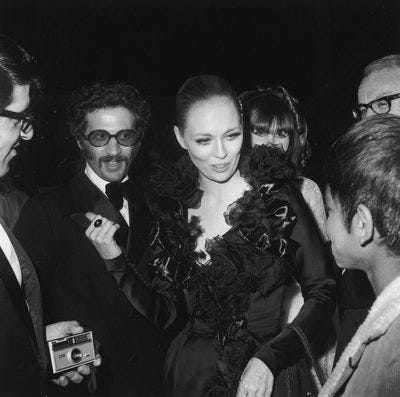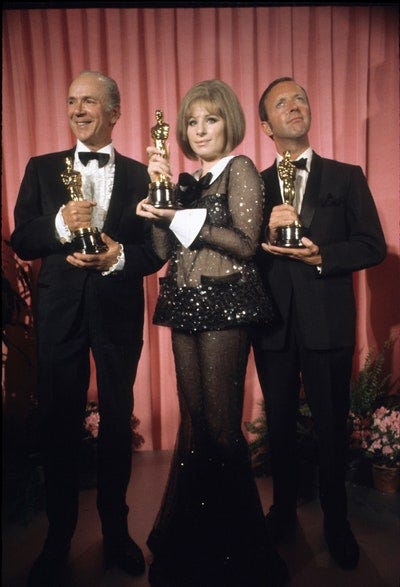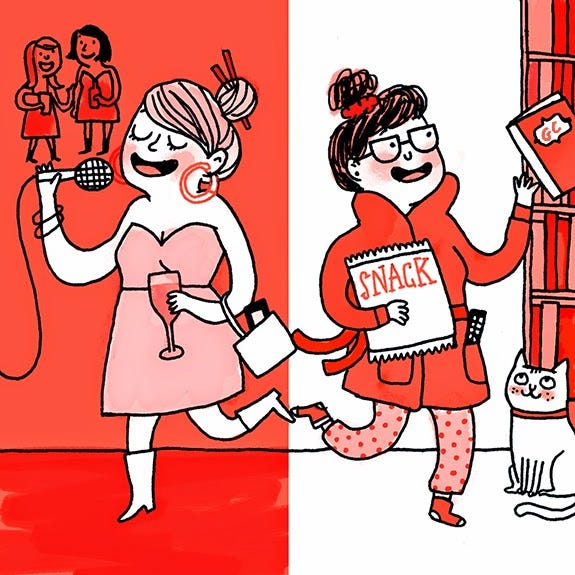the Empathy List #61: How to Disagree and Stay Friends
Skills the Evangelical Church Never Taught Me, Part 1
Hey friend, Liz here.
When’s the last time you disagreed with someone? In person? And proceeded to have a calm conversation in which you both expressed your viewpoints? And felt heard? And stayed friends afterward?
I realize the enormity of every one of those questions because, yes, I too waste time on Facebook, where arguments abound… ;-)
(Side note: the reason I’m not on Twitter is because it exacerbates my own tendency to PRESS IN to the hard conversation, which is an utterly unfruitful way to spend my time with only a few characters at my disposal and without an *actual* relationship with whoever’s disagreeing with me.)
That said, I believe disagreement happens in healthy, IRL relationships. Always. If disagreement isn’t happening, than someone isn’t being honest.
The way to push through disagreements is NOT to silence one party, to make one voice dominant and exalted, to distribute power like popcorn. The way is listening and empathy. (Surprise! You had to guess I’d go there.)
To hear someone out—when you strongly disagree—requires a level of patience and humility that just isn’t rewarded on social media. But such qualities are essential to Christian faith.
Because, by the way, when you have a healthy relationship with your divinity, the two of you will disagree. Often.
We are all the prophet Jonah, jumping overboard into frothy waters, to escape the “wonderful plan God has for our lives.”
As a teenager, I dreaded the future. I understood that God was a distinct person from myself, and so had a distinct will. To boot, I knew that God was all-powerful, which meant God could bend me into all sorts of situations I’d HATE with all my angsty teenage heart.
Would God buy me a ticket to Africa, where I’d live in a hut, preach barefoot and smell of Deet for the rest of my life? Would I have the chance to let my adorable husband unfasten my bra before Jesus returned on a cloud, blowing raspberries into a shofar, to rapture me into boring, old heaven? (Please let me have sex first, I prayed earnestly.) Would I be destined to birth a truckload of screaming children? Would I ever get to use my brain? Would I ever have fun again?
Yet I missed the essential piece: to maintain a relationship, you must build trust. So, even if God didn’t give me a boyfriend (which was my dearest 18-year-old wish), even if my political party differs from friends, even if my pastor holds an opposing theological position on women in ministry (sigh), the question isn’t how can I convince them to believe like me? The question, instead, is can I trust them? And even, what can I learn from them? What am I missing?
The way to demonstrate trust and respect is to hold your tongue. To listen. To hear. To ask for the chance to express yourself and be listened to. And then to let it go.
This is another way of saying, respect the boundaries of each person’s individual self. We are not the same people, so we won’t see things the same, even about arenas in which we want the rules to be drawn in thick, immovable sharpie lines.
If you want to have a functional relationship with another human, the way forward is to show you trust them by releasing your need to be right.
You can let them be wrong. (Just like they can let you be wrong. ;-)) You’ll live, I promise.
…And you might even be surprised by what you discover on the other side of the sharpie line.
Friends, this is the start of a series in which I plan to explore the skillsets the Evangelical church never taught me.
As I’ve written before, I grew up Evangelical: from my baby dedication, to church summer camp, to youth group, to Christian high school and college… the list goes on.
Even so, there are MAJOR THINGS for HEALTHY ADULT LIVING that I never learned to do until I walked through the door of a therapist and began shelling out thousands to get well.
I do not blame my pastors, necessarily, for this; I realize we all have our personal strengths and weaknesses. But I do blame the big c Church, the Evangelical subculture which cultivated conflict avoidance, particularly in women. Which is why I’m addressing this head-on.
My aim is to speak to my people—us Evangelicals—as one of them. I hold historic Christian beliefs, while embracing progressive political ideals, which I realize sounds in opposition, but I believe religion holds room for paradox.
We need to change, starting yesterday.
>>If you know of someone who might connect with my words, would you pass along my email to them?<<
As always, thanks for reading along. Warmly, Liz Charlotte Grant
P.S. You can follow me elsewhere on my website, Facebook and Instagram.
#1
Are parents really happier? Sure! Just not in the grand old USA.
But just a few changes could give all of us—the childfree included—a bump toward greater joy.
“…one of the more surprising findings of the study was that policy changes that helped parents also seemed to increase the happiness of non-parents.
‘There have been some people running around saying that happiness is like a fixed pie and as parents get more, non-parents get less; or that social policy that help parents hurts non-parents,’ says [sociologist and lead author, Jennifer] Glass. ‘That’s clearly not true.’”
Time | Read more…
#2
"I’m sitting in my apartment waiting to catch the disease. That’s what it feels like right now in New Delhi with the world’s worst coronavirus crisis advancing around us. It is out there, I am in here, and I feel like it’s only a matter of time before I, too, get sick.”
India is in crisis as a second wave of COVID devastates the population. Here’s what it looks like on the ground, according to a NYT New Delhi journalist.
(Psst, here’s what you can do to help.)
New York Times | Read more…
#3
This year the virtual 2021 Academy Awards were controversial, to say the least.
Still, there’s no debate that the red carpet is where fashion is made. Enjoy this list of the old favorites: the all-time best dresses worn on the Oscar’s red carpet.
Vogue | Read more…
#4
The post-pandemic war between introverts and extroverts is coming—just as soon as we reach “herd immunity.” And it’ll take some getting used to.
From an Extrovert:
“I like being in a crowded bar. I like being on a subway train and just looking at everybody. I like people-watching. I like the energy of a situation in which there are a lot of people talking and being together. I find myself recharged by those situations.
Before the pandemic, I would spend a couple of hours at home, and then I would just get bored… It would just start to psychologically wear on me if I was alone for too long.”
From an Introvert:
“I appreciate the presence of other people. But I think what I desperately need in my life is the ability to control when I am around them. I don’t like being surprised by crowds. I like being able to set aside alone time and know that for these next three hours I don’t have to deal with anyone else. I think small talk is the tax that God exacted for the privilege of human speech.”
The Atlantic | Read more...
#5
A father and daughter travel to South Korea to experience K-Pop in its natural habitat.
“K-pop, of course, is Korean pop music. But that’s like saying the Beatles were a band, or David Beckham a soccer player. Technically accurate, but woefully inadequate. K-pop is a cultural phenomenon and a multibillion-dollar industry.
…Pinpointing K-pop’s origins is tricky. [In fact,] everything about K-pop is conflicted, which seems fitting for a peninsula politically carved in two and officially still at war.
…K-pop is an alternative universe, and, unbeknownst to me, my daughter had immersed herself in it.”
Afar | Read more…
Just for Fun…
The Roots, Jimmy Fallon, and Justin Bieber break it down with classroom instruments. ;-)











